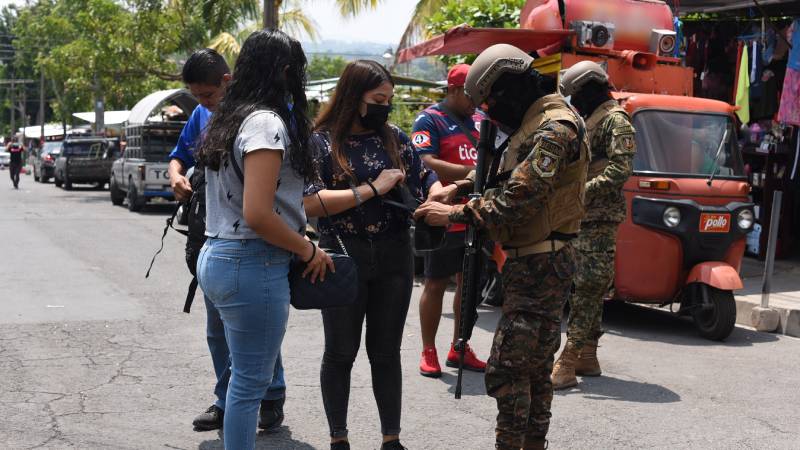As a statistician with a Ph.D. in econometrics and more than 30 years of teaching, Carlos Carcach has always used data to analyze different economic and social phenomena, including homicides and disappearances. To analyze the results of the current emergency regime, he considers it necessary not only to have the number of homicides but also to know what has happened to extortion, femicides, robberies, and thefts, among other crimes.
The current “war against gangs,” as the government advertises the emergency regime in effect since March 27, does not seem to him to be something new but rather a new version of previous efforts to control and end gangs.
“The ghost of the truce and of, let’s say, “rapprochements,” let’s use that term, between the governments in power and the gang groups. It is known that the increase in violence, up to the levels that the homicide rate reached in 2015, was related precisely to the fact that the Sanchez Ceren government adopted a policy of direct combat against the gangs. He never spoke of a war against the gangs, but it was a well-defined effort by the government to annihilate or at least neutralize these groups.”
“So that casts doubt on how effective this could be in the medium and long term. It does not seem natural; I could say that it looks artificial; it would give the impression that there is something wrong here because the gangs have always known that, at least at the time of the 2012 truce, it was known that the gangs recognized that they were vulnerable to a response, let’s say from the state, of the kind we are seeing now. But it has also been said; it is not known how true it is, given that the gangs also used the truce to restructure, rearm, strengthen themselves, to diversify, let’s say, their portfolio of criminal activities.”
Carlos Carcach: “Como no hay datos, estamos totalmente a ciegas”
Como estadístico, doctor en econometría y con más de 30 años de docencia, Carlos Carcach siempre ha recurrido a los datos para analizar distintos fenómenos económicos y sociales, entre ellos los homicidios y las desapariciones. Para analizar los resultados del actual régimen de excepción considera necesario no solo contar con el número de homicidios, sino también saber qué ha pasado con las extorsiones, los feminicidios, los hurtos y los robos, entre otros delitos.
La actual “guerra contra las pandillas”, como publicita el gobierno el régimen de excepción vigente desde el 27 de marzo, no le parece algo nuevo, sino una nueva versión de anteriores esfuerzos por controlar y acabar con las pandillas.
Presente siempre estuvo el fantasma de la tregua y de, digamos, “los acercamientos”, vamos a usar ese término, entre los gobiernos de turno y los grupos pandillas. Se sabe que el incremento de violencia, hasta esos niveles que alcanzó la tasa de homicidio en 2015, se relacionaron precisamente a que el gobierno de Sánchez Cerén adoptó una política de combate directo a las pandillas. Él nunca habló de una guerra contra las pandillas, pero realmente sí era un esfuerzo bien definido del gobierno de aniquilar o, cuando menos, neutralizar a estos grupos.
Entonces eso hace dudar de la eficacia que esto pueda tener en el mediano y en el largo plazo. No parece como un hecho natural, podría decir que parece artificial, daría la impresión de que hay algo que no cuadra aquí, porque las pandillas siempre han sabido que, por lo menos en el tiempo de la tregua del 2012 se sabía que las pandillas reconocían que eran vulnerables, ante una respuesta digamos del Estado, del estilo del que estamos viendo ahora. Pero también se ha dicho, no se sabe qué tan cierto sea, que dado eso, las pandillas usaron la tregua también para reestructurarse, para rearmarse, para fortalecerse, para diversificar, digamos, su portafolio de actividades criminales.

